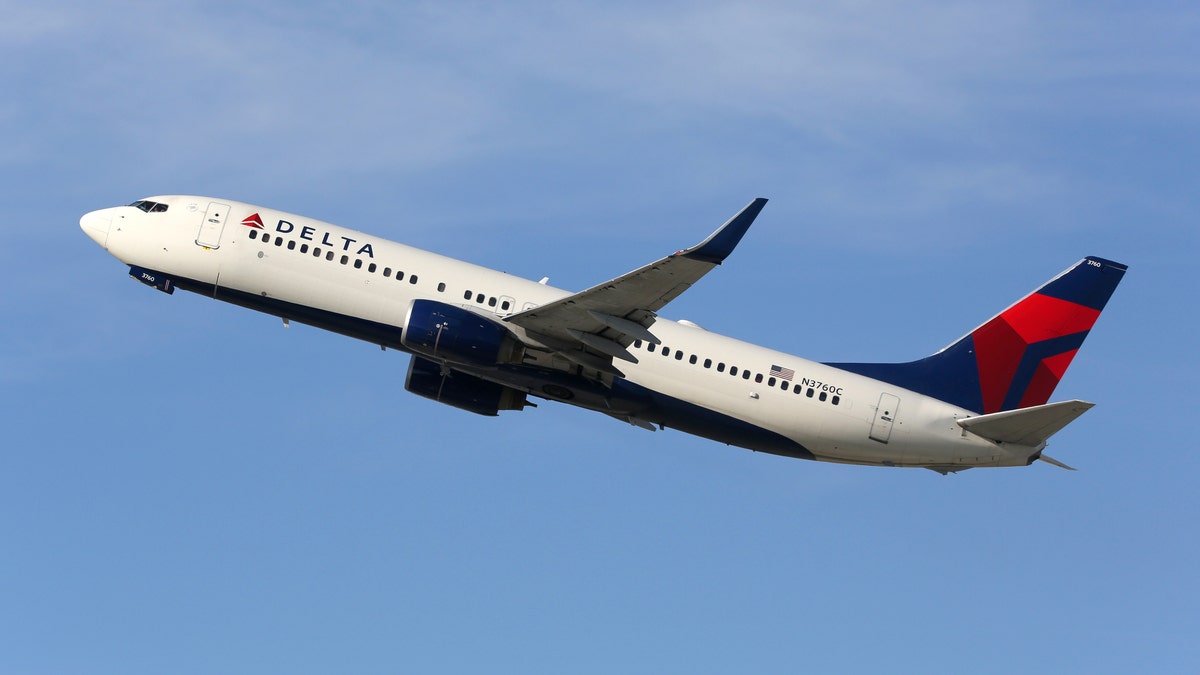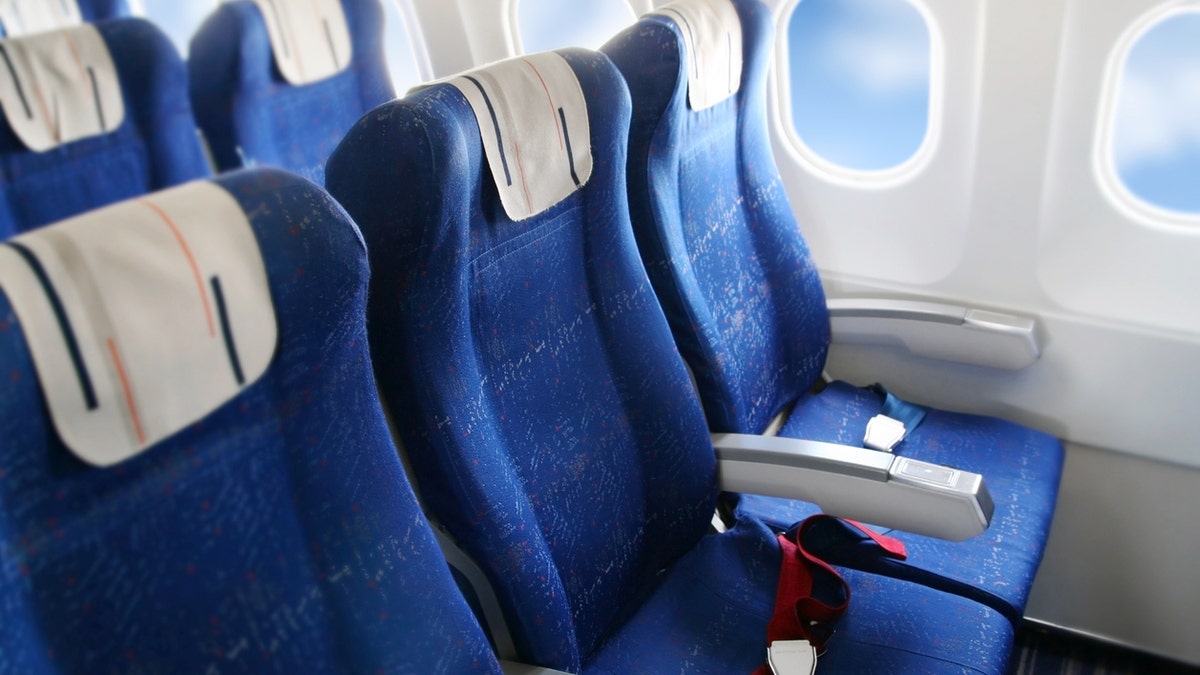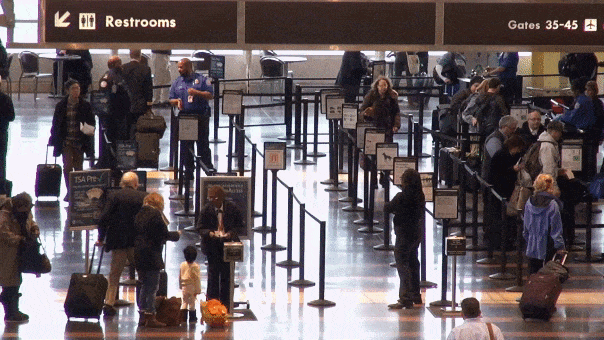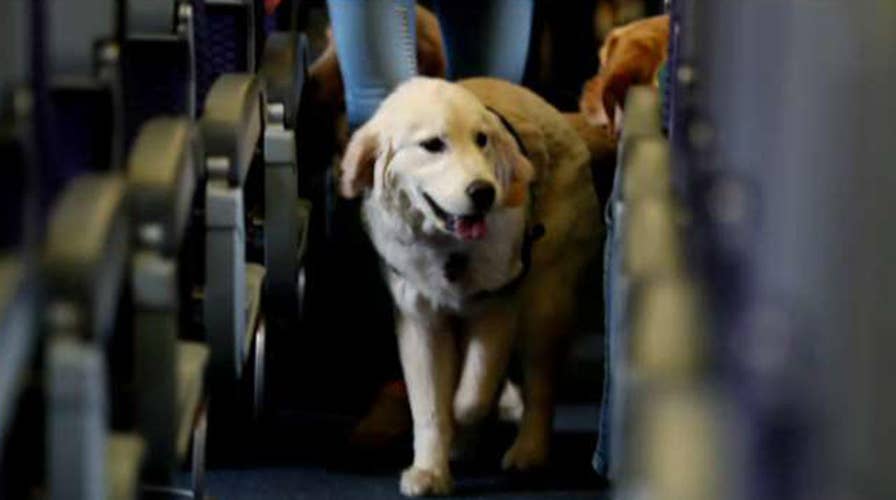Emotional support animals posing problems for airlines
Airline lobby group releases statement about problems posed by animals on flights; Raymond Arroyo shares 'Friday follies' on 'The Ingraham Angle.'
Delta Air Lines has lengthened the proverbial leash regarding the rules for flying with emotional support animals by revoking a previous eight-hour flight limit for traveling with animal companions.
However, the carrier continues to ban pit bulls, upholding a policy instituted in 2018 following several onboard incidents. In one of the most publicized, a passenger was left with a bloody face after another passenger’s dog attacked him.
DOG WALKER CAUGHT RUMMAGING THROUGH CLIENTS' REFRIGERATOR, DRINKING THEIR BOOZE
The Atlanta-based airline made the announcement on Monday, detailing that the changes were in response to the U.S. Department of Transportation’s final statement of enforcement priorities for service and support animals, which was published in August.
“Effective immediately, Delta is discontinuing its 8-hour flight limit for ESAs [emotional support animals],” reps for the carrier said in a news release. “After working with the DOT and cross-divisional business groups, Delta was able to develop a solution to protect the health and safety of those onboard while also allowing ESAs to fly on longer flights.”

“We will never compromise on safety, and we will do what is right for the health and safety of our customers and employees,” John Laughter, senior vice president of Corporate Safety, Security and Compliance, said in defense of the decision. “We continue to work with the DOT to find solutions that support the rights of customers who have legitimate needs to travel with trained animals.” (iStock)
The eight-hour flight limit was in place for less than a year, according to The Atlanta Journal-Constitution.
According to the news release, however, the carrier plans to continue banning pit bulls from traveling as emotional support or service animals “to protect the airline’s employees, customers and trained service animals.”
“Pit bulls account for less than 5 percent of the overall dog population but 37.5 percent of vicious dog attacks. Understanding this risk, Delta has not come to a solution for allowing pit bulls onboard that satisfies its own rigorous safety requirements,” the release said.

However, the carrier continues to ban pit bull as emotional support animals, upholding a policy instituted in 2018 following several onboard incidents. (iStock)
“We will never compromise on safety, and we will do what is right for the health and safety of our customers and employees,” John Laughter, senior vice president of Corporate Safety, Security and Compliance, said in defense of the decision. “We continue to work with the DOT to find solutions that support the rights of customers who have legitimate needs to travel with trained animals.”
CLICK HERE TO SIGN UP FOR OUR LIFESTYLE NEWSLETTER
In June 2017, a Delta Air Lines passenger was allegedly attacked by what the police report identified as a “chocolate lab pointer mix" during a flight from Atlanta to San Diego, suffering injuries to his face and upper body. The man has since filed a lawsuit against the carrier regarding the incident.
The DOT’s August guidance, meanwhile, rejected Delta’s 2018 ban of “pit bull-type dogs.”
More specifically, the federal government said that airline employees can bar any animal they consider a safety threat but they cannot issue a blanket ban against an entire breed, such as pit bulls.
On Tuesday, Kitty Block, the president and CEO of the Humane Soceity of the U.S., described the airline’s continued ban of pit bulls as deeply concerning and “discriminatory.”
“Delta’s decision to maintain its discriminatory ban on pit bull-type dogs as service dogs is misguided and will hurt countless individuals,” Block said in a statement. “We continue to offer Delta and all airlines our support to implement alternatives that keep the skies friendly for people and animals alike.”
FOLLOW US ON FACEBOOK FOR MORE FOX LIFESTYLE NEWS
In recent months, both public and professional organizations, including the Association of Flight Attendants (AFA), have urged lawmakers to review the rules for service animal designations during air travel, to combat an alleged culture of “rampant abuse” of protocol. The AFA claimed that the matter was escalating into a “safety, health, and security issue” that was “negatively affecting all passengers.”
Earlier this summer, reps for Delta said the airline carried 245,000 service and support animals last year, about the same as 2017 and up from around 100,000 in 2015.
Traveling in the high skies with animals – whether emotional support, service or companion – has proven to be one of the most controversial travel topics in recent years.

In recent months, both public and professional organizations, including the Association of Flight Attendants, have urged lawmakers to review the rules for service animal designations during air travel, to combat an alleged culture of “rampant abuse” of protocol. (iStock)
The floodgates arguably first opened in January 2018, when an emotional support peacock named Dexter and his owner were rejected from boarding a United Airlines flight.
CLICK HERE TO GET THE FOX NEWS APP
In response, various domestic carriers have tightened the leash on their respective rules regarding the transportation of all animals.
Reps for Delta were not immediately available to comment on the policy changes announced on Monday.
Fox News’ Dom Calicchio and the Associated Press contributed to this report.









































